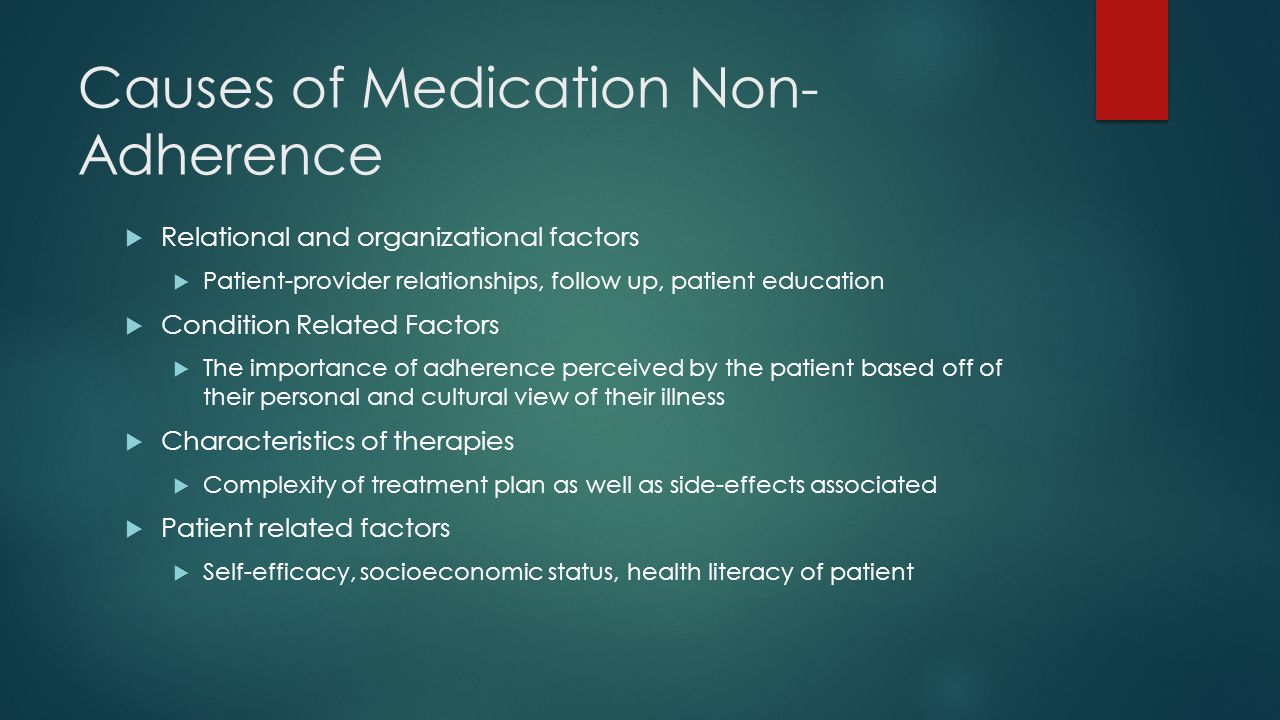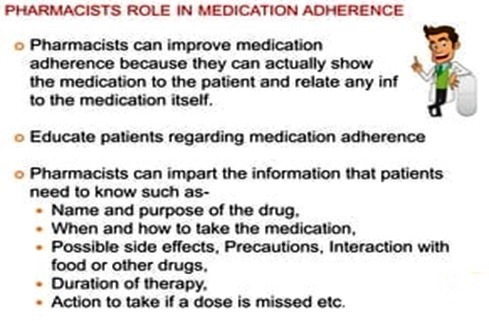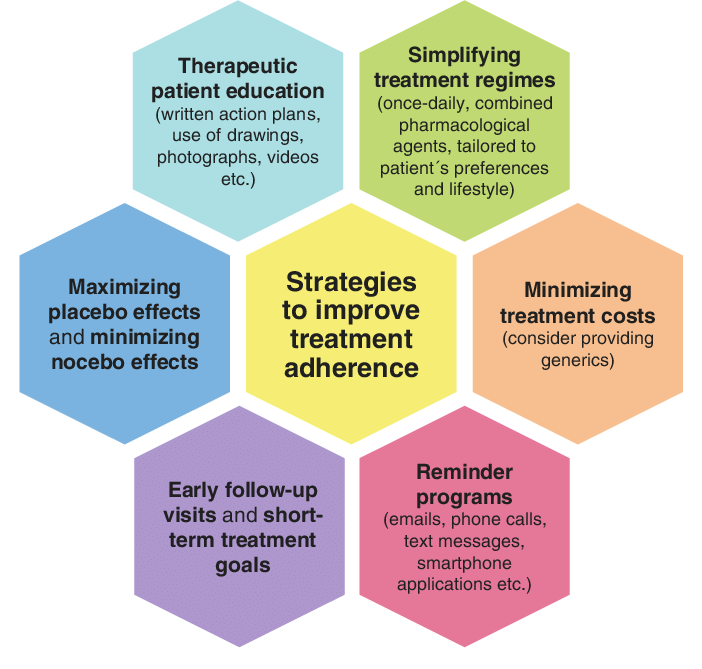❖ Introduction:
Medication adherence plays a crucial role in achieving positive health outcomes and managing various medical conditions effectively. However, studies consistently reveal that many patients struggle with adhering to their prescribed medication regimens. This blog aims to shed light on the importance of medication adherence, explore the reasons behind non-adherence, and provide practical tips and strategies for improving compliance. By understanding the significance of medication adherence and implementing effective strategies, patients can take control of their health and experience the full benefits of their treatment plans.
❖ The Impact of Medication Adherence:
Adhering to prescribed medication is essential for achieving optimal health outcomes. It ensures that patients receive the appropriate dose of medication at the right time, maintaining therapeutic levels in their bodies. Proper adherence promotes disease management, prevents complications, and enhances the quality of life. On the contrary, non-adherence can lead to treatment failures, disease progression, increased healthcare costs, and reduced overall well-being. By recognizing the impact of medication adherence, patients can make informed decisions and prioritize their health. Medication adherence, or the extent to which patients take their medications as prescribed, has a significant impact on individual health outcomes and overall healthcare system. Here are some key points highlighting the impact of medication adherence:
- Improved Treatment Efficacy: Adhering to medication regimens as prescribed increases the likelihood of achieving desired treatment outcomes. When medications are taken consistently and according to the prescribed dosage and schedule, they can effectively control symptoms, manage chronic conditions, and prevent disease progression.
- Reduced Hospitalisations and Emergency Room Visits: Non-adherence to medications can lead to worsening of symptoms or complications, resulting in hospitalizations or emergency room visits. Adhering to prescribed medications helps prevent avoidable healthcare utilization, reducing the burden on healthcare systems and decreasing healthcare costs.
- Better Disease Management: Medication adherence is crucial for the effective management of chronic diseases such as diabetes, hypertension, and asthma. Consistent use of medications helps control symptoms, stabilize blood pressure, manage glucose levels, and reduce the risk of complications associated with these conditions.
- Prevention of Treatment Failures: Some medications, particularly antibiotics and antiviral drugs, require strict adherence for optimal effectiveness. Failure to complete a full course of antibiotics, for example, can contribute to antibiotic resistance and treatment failures. Adhering to prescribed regimens ensures the complete eradication of infectious organisms and reduces the risk of recurring infections.
- Enhanced Quality of Life: Medication adherence can significantly improve an individual’s quality of life. Properly managed symptoms, reduced disease progression, and improved overall health contribute to a better sense of well-being, increased productivity, and the ability to engage in daily activities.
- Cost Savings: Non-adherence to medications can lead to increased healthcare costs associated with hospitalizations, emergency room visits, and complications. By adhering to medications, patients can potentially avoid costly interventions, reduce the need for additional medications, and effectively manage their conditions, resulting in long-term cost savings for both individuals and healthcare systems.
- Patient Empowerment: Medication adherence empowers patients to take an active role in their healthcare. It encourages self-management, fosters better communication with healthcare providers, and allows individuals to have more control over their health outcomes.
❖ Reasons for Non-Adherence:
Several factors contribute to medication non-adherence. Patients may experience practical barriers such as forgetfulness, complex medication regimens, or difficulty accessing medications. Additionally, beliefs, attitudes, and misconceptions about medications can influence adherence. Fear of side effects, scepticism about the effectiveness of medications, and concerns about dependency are common barriers. Moreover, poor communication between healthcare providers and patients can lead to confusion or lack of understanding regarding medication instructions. Identifying these factors allows patients and healthcare providers to address them effectively. Non-adherence to medication regimens is a common challenge that healthcare providers and patients face. Several factors contribute to non-adherence, and understanding these reasons is essential in developing strategies to improve medication adherence.

❖ Here are some common reasons for non-adherence:
- Lack of Understanding: Patients may have limited health literacy or a lack of understanding about their medications, including their purpose, dosing instructions, and potential side effects. This lack of comprehension can lead to confusion and unintentional non-adherence.
- Complex Regimens: Some medication regimens involve multiple medications taken at different times of the day, with specific instructions regarding food intake or other considerations. Complex regimens can be difficult for patients to follow consistently, leading to non-adherence.
- Side Effects: Medications often come with side effects that can be unpleasant or uncomfortable. Patients may choose to skip doses or discontinue medications to avoid these side effects, which can interfere with adherence.
- Cost and Access: The cost of medications and limited access to healthcare services can be significant barriers to adherence. Patients may struggle to afford their medications or face challenges in obtaining refills, resulting in non-adherence.
- Forgetfulness: Forgetting to take medications is a common reason for non-adherence. Busy lifestyles, lack of routine, or cognitive impairments can contribute to forgetting doses, especially for medications taken on a daily basis.
- Fear or Beliefs: Some patients may have fears or concerns about their medications, such as worries about addiction, dependence, or long-term effects. Cultural beliefs or personal beliefs about medications can also influence non-adherence.
- Lack of Symptom Improvement: If patients do not experience immediate symptom relief or improvement, they may question the effectiveness of their medications and choose to discontinue or modify their treatment without consulting their healthcare provider.
- Mental Health Factors: Mental health conditions, such as depression or anxiety, can affect medication adherence. Patients may struggle with motivation, focus, or self-care, making it challenging to adhere to their medication regimens consistently.
- Language and Cultural Barriers: Language barriers and cultural differences can impact medication adherence. Patients may have difficulty understanding medication instructions or have cultural beliefs that influence their adherence behaviours.
- Social Support: Lack of social support or isolation can contribute to non-adherence. Patients who do not have a reliable support system may struggle to remember medications or may face challenges in managing their conditions effectively.
It is important for healthcare providers to address these reasons for non-adherence and work collaboratively with patients to develop strategies that promote medication adherence. By understanding the barriers patients face, healthcare providers can tailor interventions, provide education and support, and implement personalized approaches to improve medication adherence and ultimately enhance patient outcome.

❖ Practical Tips for Improving Medication Adherence:
- Open Communication: Establish a strong rapport with your healthcare provider. Ask questions, seek clarification about medications, and express any concerns or challenges you may have.
- Medication Organization: Use pill organizers, reminder apps, or alarms to help you remember to take your medications at the prescribed times.
- Medication Routine: Integrate your medication schedule into your daily routine. Take your medications at consistent times and associate them with daily activities to help create a habit.
- Understand Instructions: Make sure you fully comprehend the instructions for each medication, including dosage, frequency, and any special considerations. If anything is unclear, consult your healthcare provider or pharmacist.
- Seek Support: Engage the support of family members, friends, or caregivers who can remind you to take your medications and provide assistance if needed.
- Medication Refill Reminders: Set reminders for refilling your medications in advance to avoid running out of essential medications.
- Simplify Regimen: If you find your medication regimen confusing or overwhelming, discuss with your healthcare provider the possibility of simplifying it, such as combining medications or adjusting dosing schedules.
- Pharmacist Consultation: Consult with your pharmacist to ensure a clear understanding of your medications, potential side effects, and interactions with other drugs or dietary supplements.
❖ Benefits of Improved Medication Adherence:
Improving medication adherence can yield several benefits. It increases the likelihood of successful treatment outcomes, enhances symptom control, and reduces the risk of disease progression or complications. Adhering to medications also reduces healthcare costs associated with preventable hospitalizations or emergency room visits. Moreover, patients who adhere to their medications can experience an improved quality of life, better management of chronic conditions, and increased confidence in their ability to self-manage their health.

